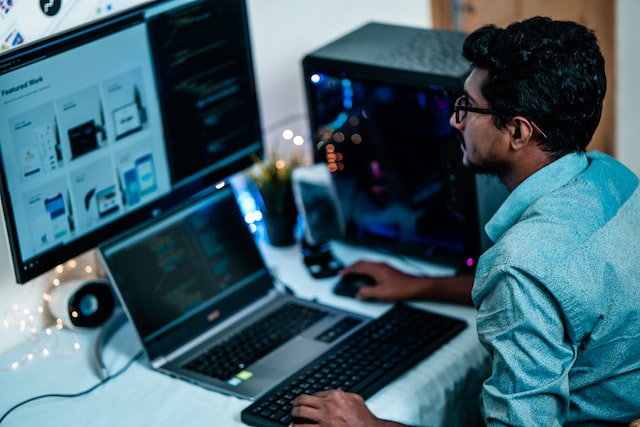All computers will eventually slow down.
The performance of your computer may suffer if it can't keep up with the increasing demands of today's applications.
It also matters if you're running Windows 10 or not and what version of Windows you're using.
Some enhancements to your laptop's hardware can increase its processing speed, but others are more cost-effective and easier to implement.
These tweaks may not significantly impact your computer's performance, but they can add too much to PC life.
There are many tools out there that can aid in deleting unnecessary files and identifying unused programs for removal.
These tools can also help you identify apps and data contributing to your computer's poor performance.
You may increase the speed and performance of your PC in seven different methods that I'll go over below.
1. Remove Unused Programs
Many unnecessary programs are preinstalled on your computer and might drain your machine's resources.
In most cases, you can tell if you've encountered one when you're prompted to upgrade an application you've never used before.
You should also know the software essential to your computer's operation and which programs can be removed.
The fact that these programs launch instantly whenever you turn on your computer significantly contributes to its overall slowness.
2. Reduce the Number of Running Apps on Boot up
Similarly, you can control the programs that launch automatically when your computer starts up.
The Windows 10 Task Manager has been revamped to make it less of a hassle to control which background processes you have enabled and which ones you need to initiate manually.
If you find that an application you were using is no longer operating but is affecting your PC usage, you may constantly adjust the settings.
If you are unsure how to proceed, you may always restart your computer to test its functionality without the presence of specific programs.
3. Increase Your Computer's RAM
Windows 10 has a lower memory footprint than its predecessors, but upgrading RAM is a tried-and-true method of making any system faster.
If you have a laptop that can be separated into multiple parts, like a tablet or a convertible, you may have to make do with whatever accessories come with your device.
While upgrading the RAM on some business and gaming laptops is possible, doing so can be challenging.
4. Conduct A Virus And Malware Scan
Getting a virus while surfing the web is practically inevitable. Still, the new Windows Defender program has made it easier to identify malicious software that could wreak havoc on your computer.
If you have picked up any malware or viruses, you may install a third-party tool, which is just as simple.
Some programs are more valuable than others, and some require more storage space, which might lead to performance concerns.
You should search for a lightweight and practical software to clean your computer of malware.
5. Defragment and Clean Your Disk
Unused or unwanted files and programs accumulate on the hard drive of every computer over time.
Using Disk Cleanup, you may determine which programs and files can be removed from your computer to make room for the ones you intend to use.
Disk Cleanup can be reached in a few simple clicks.
6. Make Use of a Solid-State Drive (SSD) For Booting Up
Improved performance is possible with the help of a startup solid-state drive (SSD), which can alleviate some of the load on the CPU during the initial phases of the boot process.
A startup drive can significantly improve applications' performance and load times, especially if you frequently multitask or use image and video editing tools.
Although solid-state drives (SSDs) are most at home on desktop PCs, they are also compatible with some laptop versions.
If you can't use an internal solid-state drive (SSD), you may buy an external drive that uses USB 3.0 to connect to your computer.
This storage device can provide the first burst of power required to launch programs and offer programs that need additional temporary memory a boost.
7. Check out Your Internet Browser
It's amazing how much of an impact little tweaks may have on your computer's performance.
The loading times of webpages, movies, and graphics can be affected by something as simple as your browser.
If you've been using a particular browser and have noticed a delay in loading times, you may want to try a different one.
It's not just the browser you're using to the Internet that could be causing a lag in your system's performance.
If your cache is complete and you haven't cleared it out in a while, go into your preferences and do it now.


No comments yet